Gen Z & TikTok's influence on Beauty
How the Beauty Industry is continuing to be impacted by Gen Z’s love of TikTok.


How the Beauty Industry is continuing to be impacted by Gen Z’s love of TikTok.


Thinking back to the first lockdown, I like many others didn't wear make-up for months, making me realise I'd worn it almost daily since I was 13! Through constant zoom calls, seeing myself and others without make-up with our 'imperfections' became normalized.
Seeking authenticity
Makeup was out (because, why wear it?) and in its place…wellness and skincare. And where did we (Speaking as a Gen Z'er) go for recommendations, Youtube and the once viewed as cheesy, TikTok. Both platforms let people recommend products based on more personal experiences, with real people sharing and not hiding their skin issues and successes on our screens. The overly perfect and curated images of Instagram influencers became less relevant as we started seeking more authentic stories, which we found on TikTok.
Combined with not being able to purchase products as easily, our product choices became more purposeful, so we looked to those we trusted for recommendations. After our friends and family, Tiktok communities increasingly became the space for education, conversations and endorsement.
Gen Z use TikTok to normalise perceived imperfections
TikTok 🤝 Gen Z's trust
Trust appears to be an area in which TikTok differs from other social media platforms; its users are in control, resulting in brands relying on their customers to become their advocates. Unlike other platforms, the app's structure creates a space for peer-to-peer conversations, creating communities and resulting in more trust between members. With people being put first, users are able to express their real selves, which we all found refreshing. Gen Z began using the platform to normalise imperfections, share their struggles and just be 'themselves'.

“52% of users say they discover new beauty products" on TikTok
The beauty community
Beauty is one of the biggest and most successful communities on TikTok, and as an industry is being heavily influenced by this platform, with products going viral and reaching wider audiences. According to Laura Karin's Elle article, “52% of users say they discover new beauty products" on the platform, but to reap the benefits brands must follow some 'Gen Z rules'. Kacey Culliney article for Cosmetics, suggests that brands must create "entertaining, reliable or meaningful" content but importantly it must be authentic to the brand. TikTok even advises brands not to follow the ‘classic’ advert formula, as it interrupts viewing and users will skip it.
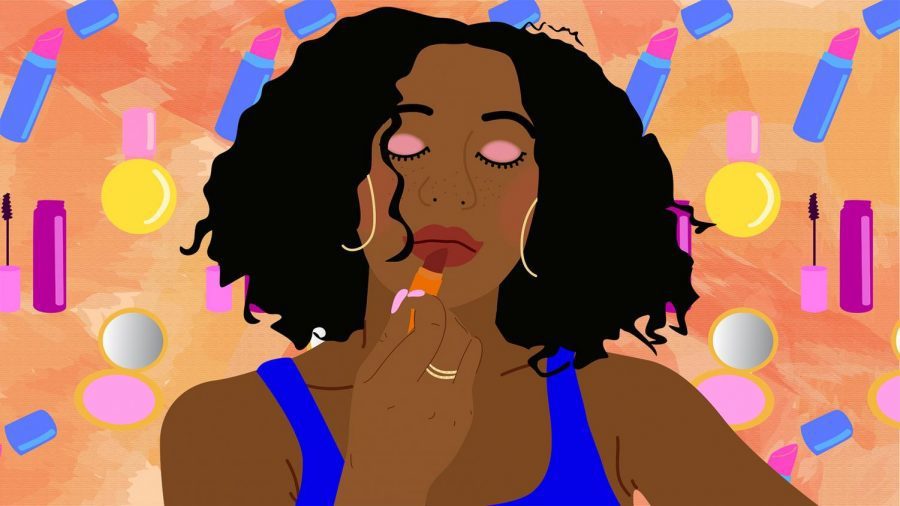
Everyone is an influencer
TikTok’s algorithm and reliance on user interactions means that everyone has the ability to influence. Unlike other social platforms, the app's structure creates a space for peer-to-peer conversations, creating communities and resulting in more trust between its members. Anyone can create content to review, recommend or even cancel a product, or their views, likes, shares, and comments are just as valuable. The result is that products start to trend on the platform based on what people are endorsing. Hashtags such as ‘#TikTokMadeMeBuyIt’, are where we look to see the latest and most recommended products. TikTokers are brutally honest about the products and experiences they come across, so brands should think hard about if and how they should be participating on this platform.
Interesting examples
There are some notable examples of beauty brands nailing it on TikTok, with a few examples showing that there is no set way of being successful on the platform.
Glossier
You can’t talk about TikTok, beauty and Gen Z without mentioning Glossier. Their content entertains and educates viewers with a wide range of videos, to creative product reveals. They are not afraid of getting their audience involved, as they repost videos created by fans and consistently reply to comments.
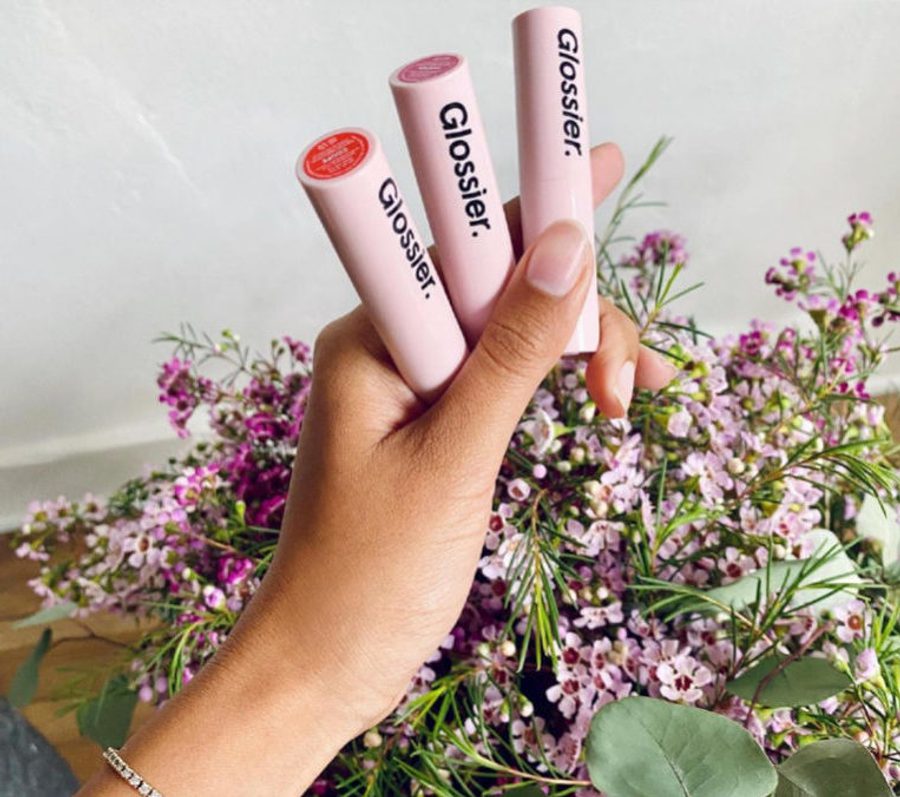
The Ordinary
This skincare brand went viral during the pandemic thanks to countless user reviews and recommendations. The brand's ethos and interactions helped educate consumers on their products which went down extremely well on TikTok. They now make entertaining content that does follow trends, but keep close to the brand's core identity.
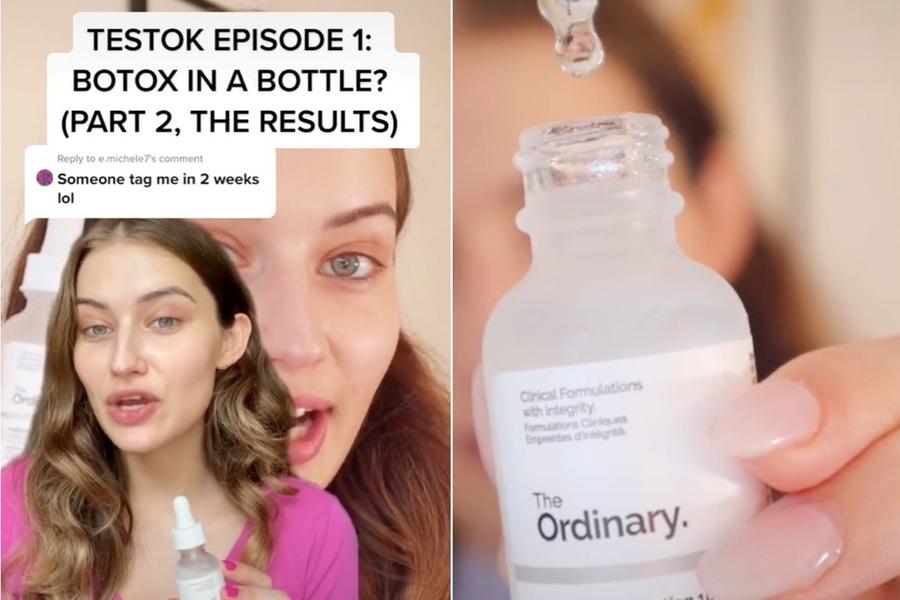
"The most influential campaign on TikTok.”
e.l.f. Cosmetics
The ‘e.l.f. It Up' campaign encouraged TikTokers to use e.l.f.’s original song in their videos to enter a competition. The trend went viral and became the "most-viral campaign ever on TikTok, with consumers contributing nearly 5 MILLION user-generated videos." Since, the brand films its videos in the style of a smaller creator, making them more relatable, while engaging with users in comments.
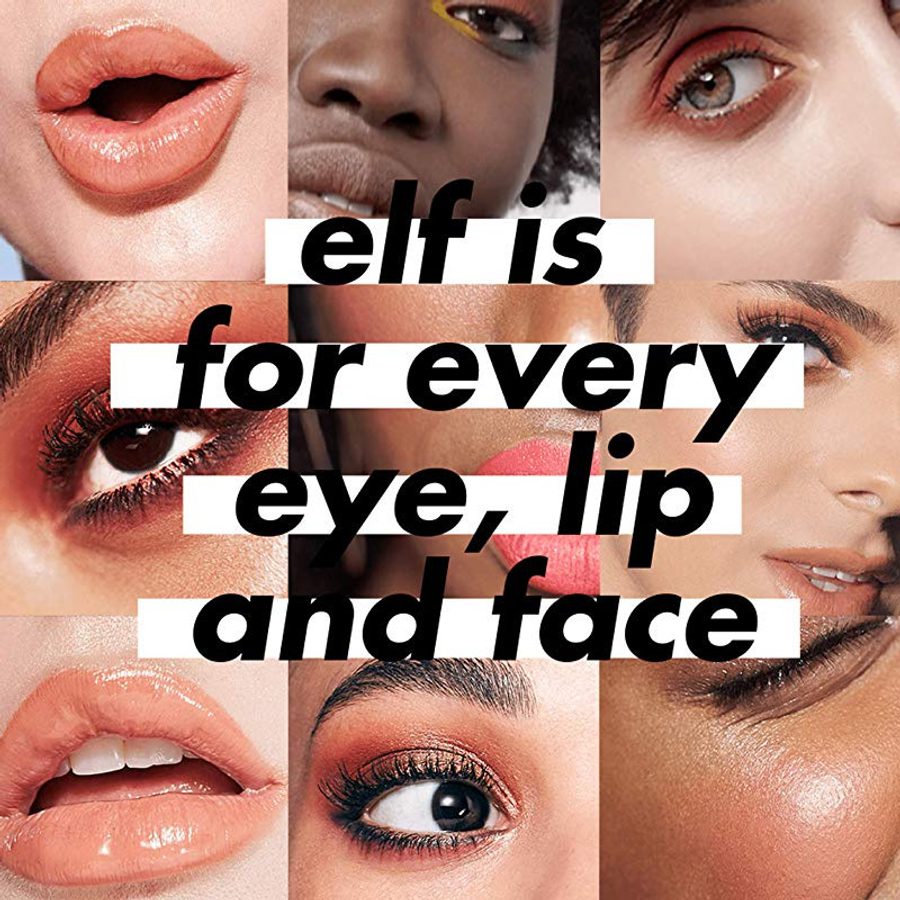
Maybelline
Lastly, the hashtag #TikTokMadeMeBuyIt made the brand's Sky High Mascara the number one trending product. Maybelline built on this and worked with creators, encouraging users to duet each other's videos about the product, resulting in it selling out four times.
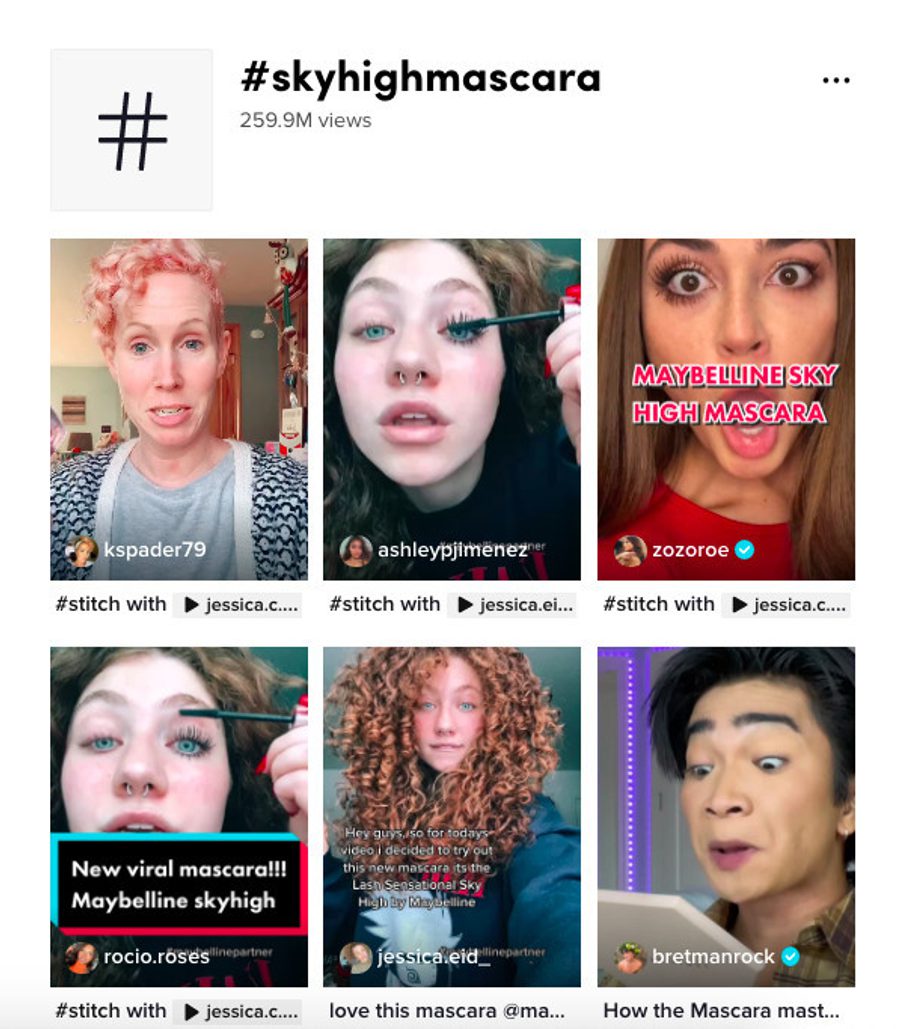
TikTok beyond the screen
TikTok’s influence across beauty has grown beyond the screen and now impacts brands' products, content, campaigns, and spaces. #TikTokMadeMeBuyIt is a source of inspiration for many, as Cult Beauty has a page dedicated to trending products. Similarly, JustMyLook created a space in their first flagship store on #TikTokMadeMeBuyIt products. And Superdrug is using their in-store ‘trending’ section to create the #SuperShow challenge, where customers record videos using Superdrugs products to the 'Super Show' song.

Some parting thoughts
TikTok’s impact on beauty cannot be denied, but brands should be mindful of how they use this platform. Users are aware of their influence and can be sceptical of overly popular hashtags or ideas being hijacked. Here are four areas that brands should be conscious of when leaning into TikTok.
1. Firstly, and most importantly, only use TikTok if it is authentic to your brand.
2. Content is based on a personalised algorithm meaning no two users will have the same 'for you' page. So remember you are having a personal interaction with a user so be cautious of mass appeal. The article How TikTok Is Rewriting the World goes into more detail on the app's algorithm.
3. Community is a key reason for TikTok's success; you should celebrate and engage with them, and create your own communities.
4. Lastly, TikTok is about entertainment, having fun, and being creative - see The Drum’s article - ‘Brands need to stop taking themselves so seriously on TikTok’ - for more on this.